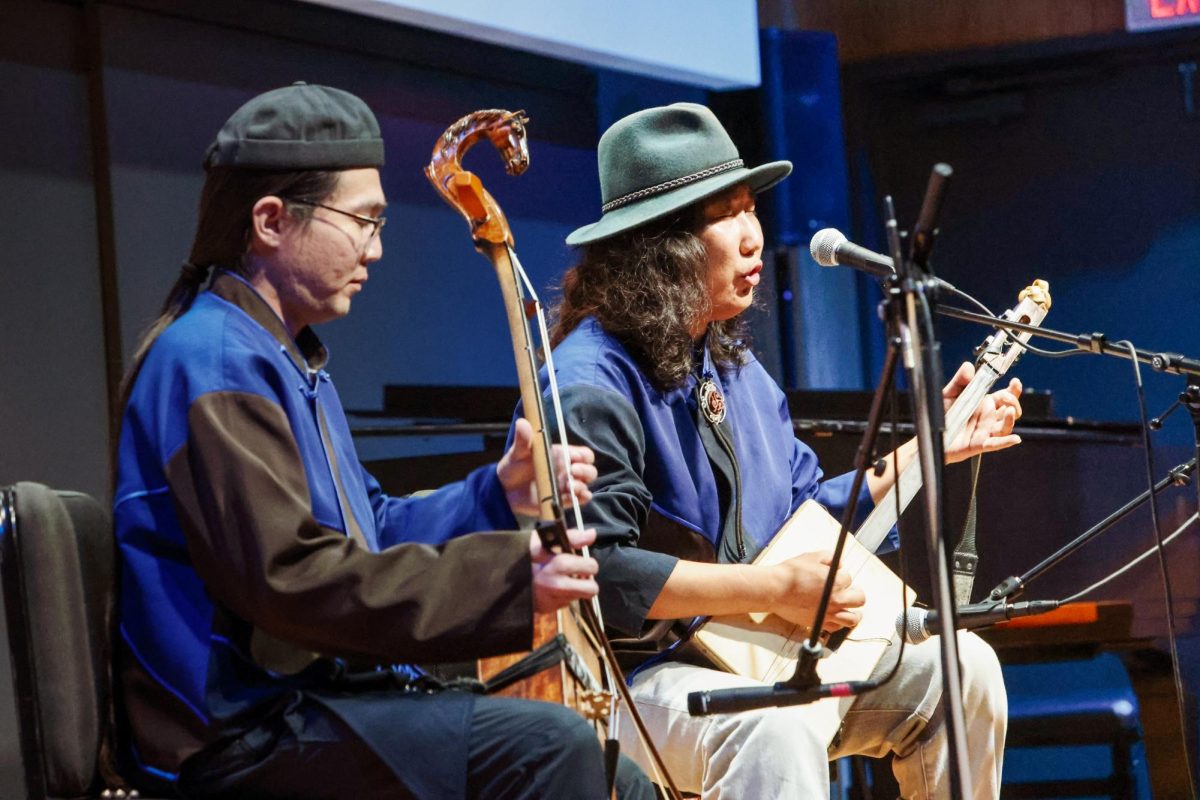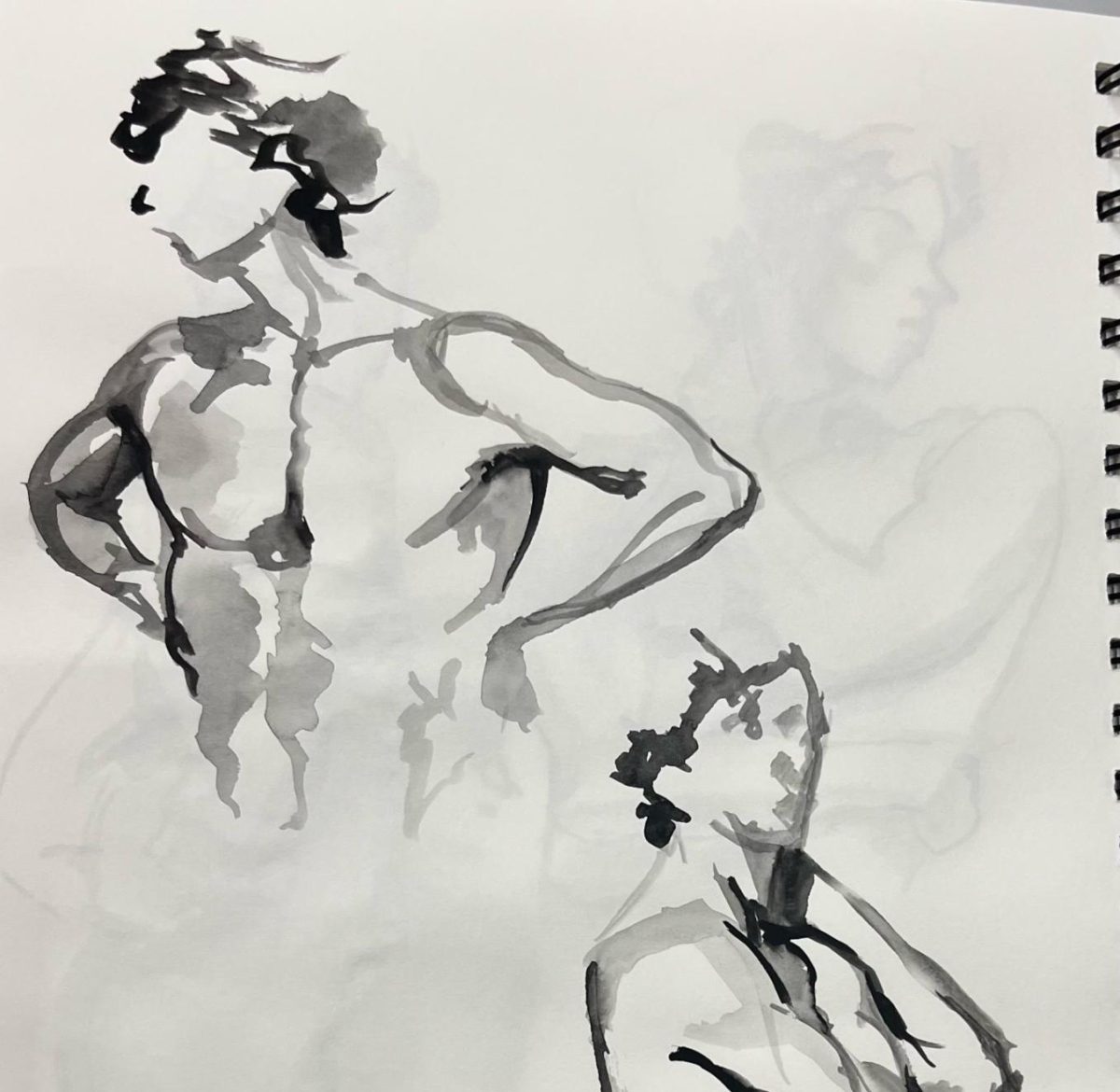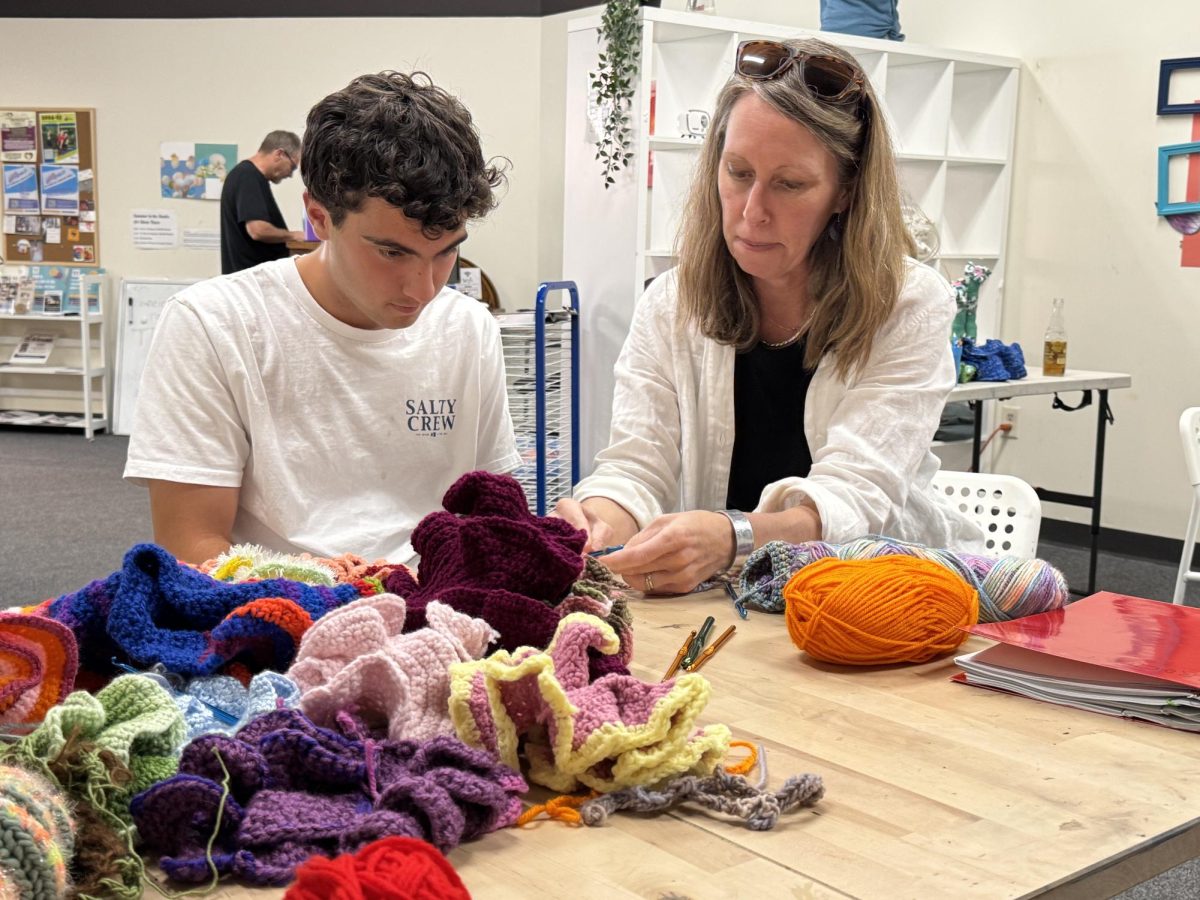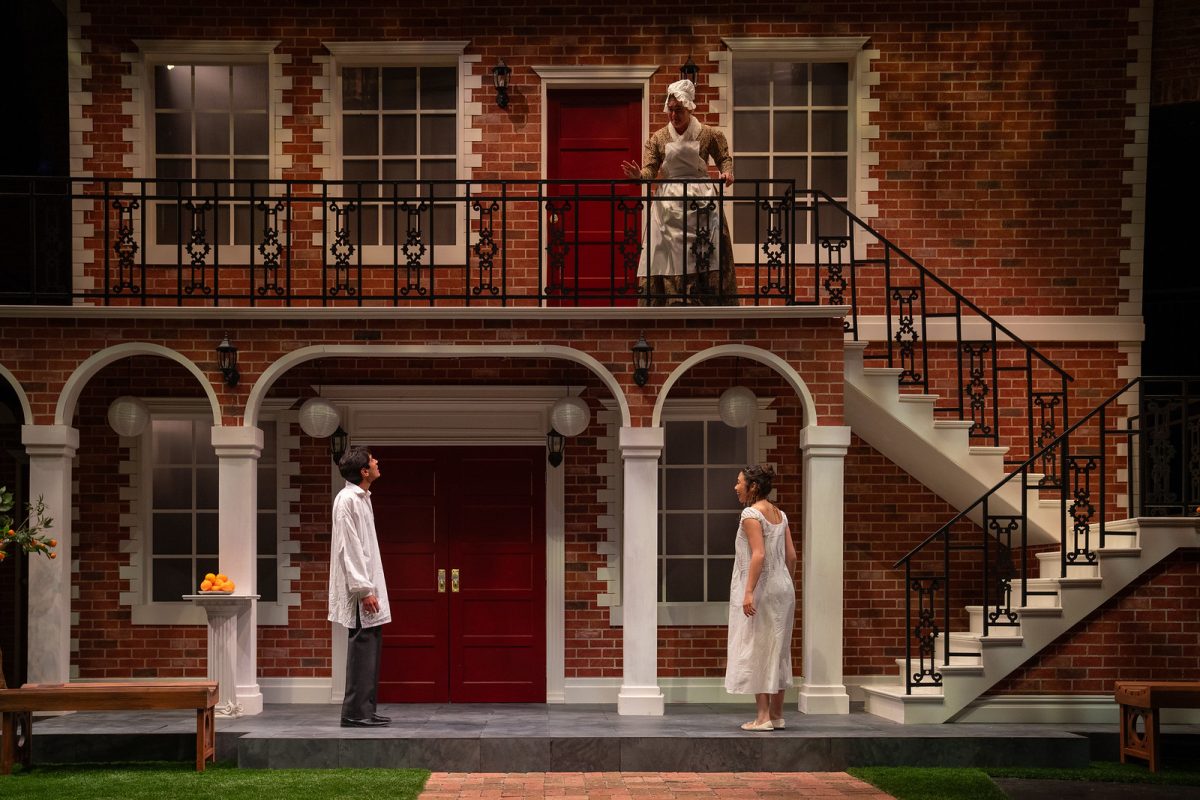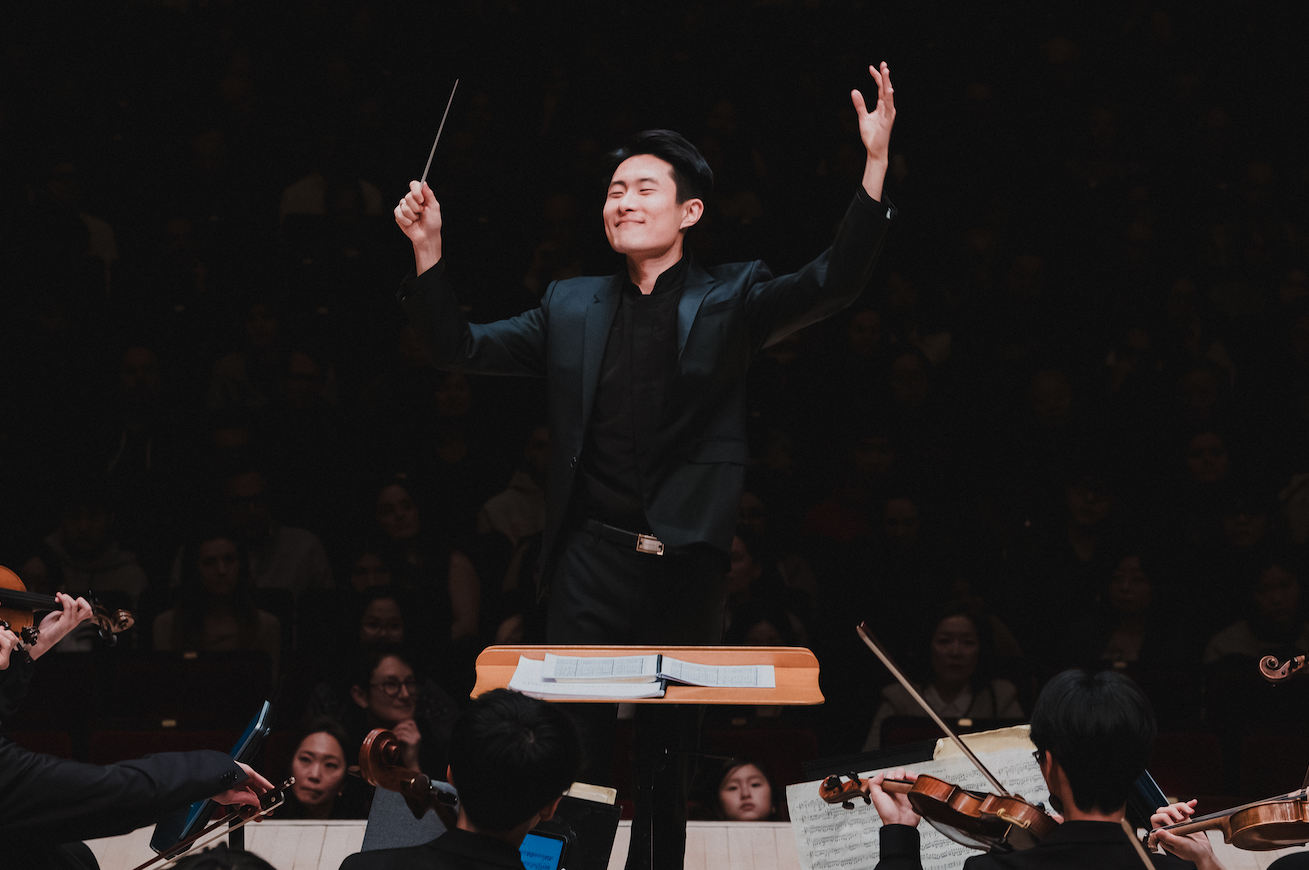
Some orchestral conductors are life-long musical prodigies, destined for the baton since childhood. Not Andrew Kim. The new director of the Berkshire Symphony sat down with the Record to discuss music, conducting, and a trajectory that was anything but preordained. “Until my junior year of high school I wanted to be an investment banker, as one does,” Kim said.
The previous director, Ronald Feldman, retired last year after 35 years at the Symphony’s helm. This spring, Kim was selected from a pool of three finalists who each came to the College to conduct a trial concert with the orchestra.
“We really were looking for someone who was both excellent as a classroom instructor and as an orchestral conductor, and we definitely wanted people who had experience as educators,” Associate Professor of Music Zachary Wadsworth told the Record.
Kim joins the College after two years directing the New York Youth Symphony (NYYS). He will continue working at NYYS while directing the Berkshire Symphony. Kim will also act as artist in residence in orchestral and instrumental activities and lecturer in music at the College.
Born in South Korea, Kim immigrated to the United States with his parents when he was 11 years old. While his parents, as planned, only stayed for one year, Kim decided to remain in the U.S. and attended a boarding school in Philadelphia.
At school, Kim took up singing as a hobby, but said he did not truly discover his passion for music until his junior year of high school.
“I was singing in a choir of probably 100 people with an orchestra in this kind of cathedral,” he said. “It was Mozart’s Requiem, but I didn’t really even know what the piece was… By doing the concert, I had this kind of life-changing moment. I had this feeling that I was singing, but also the sound was kind of coming back into my body. It was a very out of body experience.”
“At that moment, I decided, ‘I’ve never experienced anything so profound in my life, and so that means I should try to do this somehow, right?’” Kim said.
Although it was too late for him to enroll in a conservatory or music school, Kim attended Swarthmore College, planning to study music there.
Usually, people who learn to conduct are musicians who fall in love with directing music through their instruments, but Kim’s case was different. Despite having no musical background, he majored in music with the goal of becoming a conductor.
“I spent most of my time at Swarthmore feeling like I was catching up — and, I mean, I was,” he said. “I was very behind my peers, even at a non-music school, and so I spent a lot of time brushing up on my fundamentals. But I think integral to that process was just having two teachers, the orchestra director and the choral director, who really took me under their wings.”
After graduating as a music major, Kim attended Ithaca College’s conducting master’s program, and he is now finishing his doctorate at the University of Minnesota. In 2023, he started a role at NYYS in which he both conducts the orchestra and teaches the conducting program, like he will at the College.
Kim looks forward to the opportunity to guide young musicians at the College, just as he was mentored in the early stages of his career. “I think I only was able to craft this life as a musician because of my experiences and because teachers were willing to give me time,” he said. “My passion here and my mission [is] to do the same… It doesn’t have to be for conductors. For whatever type of student that I run into, I want to be the kind of figure that helps propel them towards their dreams.”
Kim said that the position affords him a unique balance between teaching and enacting his artistic vision. “At another liberal arts school, I may have been in a more pedagogical role … [but] I also felt that I could really grow as an artist here, which is a rare thing to find in academia,” he said. “When I saw [the job posting], I was like, this is meant for me. It would have been heartbreaking if I didn’t get it.”
As symphony director, Kim looks forward to maintaining a versatile repertoire for the orchestra, honoring both the past and the future. “Something that I’m really passionate about is putting in dialogue contemporary pieces with older works,” he said. “I think many times, at least within the music field, people criticize the orchestra, saying, ‘The orchestra shouldn’t be a museum.’ I really push back on that, because museums don’t just show older works… They have their permanent collection and they have rotating exhibits, and you see the two things at the same time. I think the orchestra is similar.”
For his debut concert as the Berkshire Symphony’s director, Kim has selected two pieces. The first is composer Christopher Theofanidis’ Rainbow Body, a piece composed in 2000. Taking a chant melody written by medieval composer Hildegard von Bingen, Theofanidis reimagines the theme in a contemporary orchestral piece.
“The title comes from a Buddhist concept of, when a deeply spiritual being passes away, their energy is reabsorbed back into the universe, and so it’s not lost, but the world gains something through that loss.” Kim explained. “I think it’s a very optimistic way of seeing things. I like optimism, and a bright outlook for the future is what I wanted to think about through the concert.”
For his second piece, Kim returns to the classics with Pyotr Ilyich Tchaikovsky’s Symphony No. 5. “It’s kind of a quintessential orchestral piece,” Kim said. “It deals with a very sort of romantic-with-a-capital-R theme of experiencing struggle and triumphantly coming out on the other end of the struggle. Yet again, I just kind of want to return to optimism.”
With these selections, Kim hopes to offer listeners the feeling that drew him to music in the first place. “I would say there are some orchestral pieces that highlight individual players in the orchestra, and then there are other orchestral pieces where everybody’s playing this big thing, and kind of like my experience with the Mozart Requiem, you just feel like you’re a part of something huge,” he said.
“I wanted to go with the latter, at least for the first concert,” he continued. “I’m new, obviously, and I want it to feel like we’re coming together as a community and as an orchestra.”
Kim will debut in concert with the Berkshire Symphony on Oct. 3 at 7:30 p.m., in Chapin Hall.




